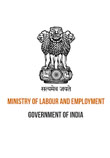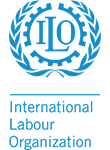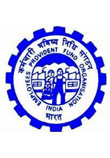-

Ministry of Labour & Employment, Govt. of India meeting with Indian Staffing Federation members : National Career Service Portal
The meeting was chaired by Addl secretary Shri (Dr) Shashank Goel, Shri Amit Nirmal, DDG (E), Ministry of Labour & Employment along with other officials, called to discuss on Sourcing challenges that can be resolved through National Career Service Portal. In addition, collate suggestions and feedback from the ISF and its members.
-

ISF working with ILO Recruitment Fees issue : Reached agreement on Definition on recruitment fees & related costs
The ILO reached a tripartite agreement on a Definition on ‘Recruitment fees and related costs’. Over the course of three intense days of negotiations an agreement was reached. It is focussed on protecting the most vulnerable of domestic and international workers that are forced to pay and deposit vast sums of money to access employment and job-offers. The outcome supports the creation of a level-playing-field for the employment and recruitment industry, based on the rule of law on the national level.
First and foremost, the agreement is very clear and unequivocal on the prohibition to charge fees to workers. Yet, it also empowers national social partners and governments to regulate and enforce the issue in a way that allows for national flexibility and tailoring on ‘related costs’ in the recruitment process. Also the final text distinctly recognises the triangular employment-agency employment from direct recruitment services. Furthermore, the outcome is clear on maintaining within the context of the recruitment process, as opposed to guiding ILO Constituents on ‘employment costs’. Finally, it clearly identifies that a vast variety of the fees and costs charged in the recruitment process are inherently illegal. These should therefore be subject to enforcement, rather than to formal recognition in international guidelines (as the Workers’ representation would have preferred). The outcome therefore reflects the positions of the International Organisation of Employers and the WEC that state that the rule of law and appropriate regulations for the employment industry are crucial preconditions for any further regulation or guidance on recruitment fees and costs.
Given the interest of the negotiations to the employment industry, WEC members were adequately represented in the employers delegation. Eight of the fourteen strong employers delegation were from the employment industry (Annemarie Muntz, acting as Employers’ Spokesperson(Randstad, The Netherlands), (Rituparna Chakraborty (ISF, India), Charles Cameron (RCSA, Australia), Bev Jack (APSO, South Africa), Menno Bart (The Adecco Group, Switzerland), Laura Spangenberg (ABU, The Netherlands), Edmundo Escobar (AMECH, Mexico) and Jochem de Boer (WEC)). Read More
Also former WEC Global Public Affairs Manager Sandro Pettineo supported the Employers delegation on behalf of ACTEMP. This allowed for extensive industry expertise and input into the employers’ positioning and the negotiations. As such it also vastly contributed to ‘damage control’ as the Workers-delegation and some of the participating governments were mandated to go much further than the agreed final document does. But most importantly the extensive industry’s engagement showcased to the ILO and other global and regional stakeholders that the World Employment Confederation is dedicated to creating fair and ethical recruitment markets and is able, willing and ready to negotiate on it.
The ILO Office is currently finalizing and translating the final and formal text that is going to be published. This should be ready in two weeks. At that time we will share the entire document with our members. Once the text is finalized, it will be sent to the ILO Governing Body together with a plan to disseminate it to the ILO Constituents. In March, the ILO Governing Body Meeting will decide on follow-up. Obviously the World Employment Confederation will engage on the appropriate roll-out of these guidelines and that they’re interpreted in the way it was agreed during the negotiations.
-

Indian Staffing Federation pursuing EPFO to delink PF to Aadhar seeding compulsory for UAN Generation
Indian Staffig Federation has been highlighting the issue of F Aadhar seedigfor generation of UAN to the EPFo officlas for long. There are situations where there is mismatch of other information, such as Name being spelt wrongly or DOB not updated correctly in the Aadhaar database, as against the declaration provided by the employees at the time of taking up employment or shifting from one employer to another. Many job seekers do not remember their old UAN. Read More
In light of the above EPFO Headquarters called for the meeting with ISF and has agreed to work on a viable solution which is job seeker and employer friendly to provide a respite at the earliest.
-

Indian Staffing Federation with persistent efforts with Ministry of Labor & Employment (Central) has been able to move the CLRA Amendment on National License for staffing companies to reduce administrative hassles to procure license to provide manpower
Ministry of Labor and Employment finalised the changes in the Contract Labor and Regulation Act amendment. The persistence to bring change in our industry through this amendment finally has gone through with the same is expected to be presented to parliament in the next session. Indian Staffing Federation has been involved in the amendment process to bring the National License and its impact across the rules of the act as required to be changed since last two years. Highlights of the amendment to be; Read More
1. National License will be provided by the state basis the headquarters of the customers. If the staffing player is citing more than one customer/establishments outside of the state, they can be given National License to operate. In case staffing partner would prefer to cater to customers/establishments only in one state, they can be given the state license as well.
2. All licencing processes to be done online.
3. 3 years validity of a license to operate for the Contract Staffing Company, which can be revoked on violation. -

Indian Staffing Federation working on the 4th Labor Code of Occupational, Health and Safety for inclusion of current CLRA Amendment
Indian Staffing Federation through its regulatory committee is working on the 4th Code where CLRA will be merged. This change will be more in lined to incorporate the National License and other changes that the ndustry anticipates for consideration. Ministry of Labour and Employment will evaluate with all concerned groups accordingly, to bring the code into parliament maybe by next year before elections.
-

Ministry of Labor & Employment (Central): Amendments to bring Online Maintenance of Registers under 9 Labour Laws (Central Sphere) and launched Unified Annual Return Report, with the involvement of Indian Staffing Federation
Indian Staffing Federation has been working with Ministry of Labour and Employment in the amendment process of simplification of reports for an effective labour reform. The Ministry of Labour & Employment, for ease of compliance of Labour Laws reduced the number of Registers to be maintained to 5 in place of 56 Registers which were provided under the following Central Labour Laws/Rules. Along the same effort, the ministry also focussed on the Shram Suvidha portal being developed to further enhance and support with its services to meet the process change across labour acts and report submissions. Ministry of Labour and Employment, has initiated a dialogue with all states to bring a one format reporting in due course, and maybe ISF’s efforts co ordinating the same, Read More
could add value to the agenda with the states. This will reduce a lot of administrative burden on the industry, where statewise reporting is a big challenge using different data columns for similar heads. -

Involving States – Ministry of Labour from Telangana, Tamil Nadu, Delhi and Maharashtra in discussion for supporting organised staffing
The big change as advocated by ISF is to bring a ‘ease of business’ by organised flexi staffing industry in discussion with state labour ministries. Among other recommendations being pursued actively are the online acknowledgement of licenses, which is currently granted offline. The state Ministry of Labor departments however, want to take small steps initially. Discussion with Maharashtra, Delhi, Telangana and Tamil Nadu. With most states, they are keen to partner on bringing jobs and increasing employment, thus seek support in being able to mobilise the employment. Currently, Job fairs are the only active model that most states have adopted, and most cities are not viable for travel. ISF recommends online Job fair as the best next move for the purpose, which is under deliberation in Delhi and Maharashtra. Read More
ISF shared the insights of the Indian Flexi Staffing Research report to all the Labour Ministers and the need for ministry to look at the flexi staffing as a strong enabler of job growth in the state. ISF proposed changes in the labour reforms to support the job generation for the state.
-

ISF partnered with Association of Infrastructure Industry (India) to bring recognition to employment in the Infra sector through combined activities
Association of Infrastructure Industry, India (AII India) is a fledgling national body for stakeholders in the infrastructure industry space and aims to represent the industry on all forums. Incorporated in February 2017, as a Trust, the AII India seeks to act as a nodal and premier body that not only brings together the various stakeholders, but also aims to provide quality inputs to both governments as well as the industry thereby facilitating infrastructure growth of the country. It aspires to create platforms that generate concrete actionable ideas as well as conducting research that furthers inclusive infrastructure growth in the country. AII India believes that the infrastructure transformation of India is achievable through an inclusive approach – of Governments, Private Corporations and Public. The need is for continuous outcome-based dialogue that engages all stakeholders – dialogues that give actionable intelligence.
-

ISF had a dialogue with Association of Retail Industry to identify and work on issues to improve the contract employment in the sector through combined activitiesISF had a dialogue with Association of Retail Industry to identify and work on issues to improve the contract employment in the sector through combined activities
ISF initiated a dialogue with Retail industy association to be able to work together on issues of contract staffing/skilling for the retail and ecommerce industry.
-

ISF had a dialogue with Association of Plastics Manufacturing Industry to work on issues to improve the contract employment in the sector through common activities
ISF initiated a dialogue with Plastics manufacturing industy association to be able to work together on issues of contract staffing/skilling for the industry.
-

CLRA amendments
- Provision to include provision for National License for Staffing Companies,
- Minimum Turnover as threshold base to allow organisations to operate in the space
- Renewal of Licence in a 3-5 yr period
-

Involving States – Ministry of Labour from Maharashtra, Telangana in discussion for the Contract Labor and Regulation Act Amendment
The big change as advocated by ISF is to bring a License to operate in flexi staffing industry. This will not only regulate the staffing industry but also reduce the unorganized sector. Employers will gradually have to shift to work with the license holding staffing companies to operate in this industry.
The state Ministry of Labor departments however, want to take small steps initially. Maharashtra announced and amendment with number of contrat workers being increased to 50 from 20 to bring ease of business and procurement of CLRA by employer. -

Central Ministry of Labor & Employment working on National License for staffing industry along with Indian Staffing Federation in the 4th Labor Code and amendment to the current act
Ministry of Labor an Employment initiated the change in the contract labor and regulation act among several other acts last year, being amended under labor reforms. Indian Staffing Federation has been involved in the amendment process to bring the National License and its impact across the rules of the act as required to be changed. The same is being done in 2 stages and is expected to go to cabinet within next 1 year.
-

Digitisation of records, Ministry of Labour and Employment
Ministry of Labour and Employment called ISF into a committee meeting for presenting opinion on draft Digitization of Labour records.
Format standardization of Central and State forms.
Use of Aadhar and PAN effectively as validations and draw data from their database to pre-fill forms. Change in Gratuity form to do away with the need for witness.


